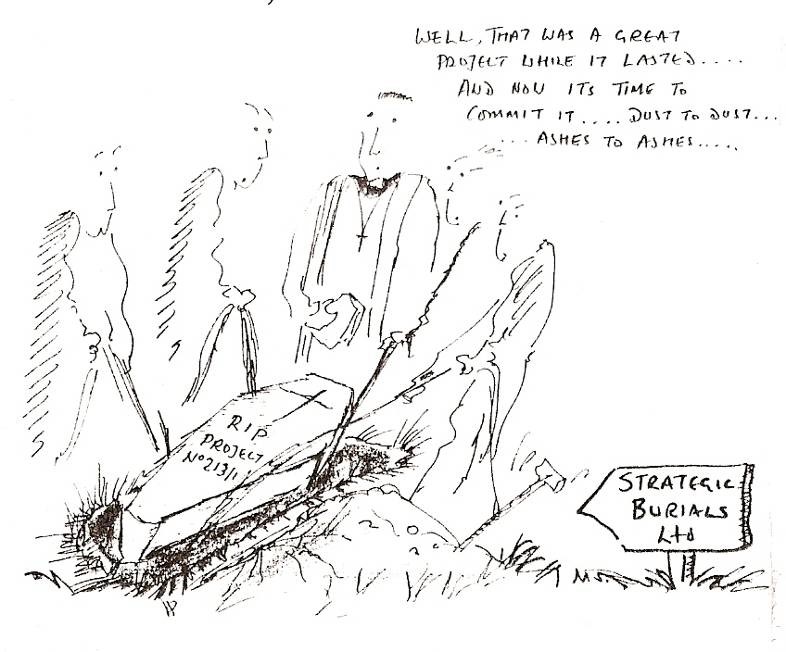
By Rick James
No one likes endings, particularly when premature and forced upon us. But in the current crisis, where almost half of UK charities for the world’s poorest are expected to close within the next 12 months, NGOs suddenly need to get very good at endings. As programmes, partnerships and even organisations end, we want to leave a lasting positive legacy, not a swath of destructive disillusionment. As a sector, we do not have a great track record of ending well. For years we have tended to keep ineffective, dated projects on life support machines. We may have been operating on the unspoken assumption that the work we support should and will go on for ever. 2020 reveals in painful and stark ways that this is not the case.
In the next few months and years, many of us in the sector will be having to assist responsible closure of partnerships and programmes, ensuring that as many of the existing commitments are fulfilled and that the on-going needs of target communities will be met by others. It helps to do this in a considered and responsible way, even in a financial crisis. Doug Reeler of Tamarind Associates explored how many of us struggle with the Eastern notion of a ‘good death’ and wrote about it eloquently in his article A good death: in search of developmental endings (CDRA Nugget, 2000). . We know from nature that death is an intimate part of any life cycle. We also know from human experience that funerals are important symbolic occasions which can be vital in helping people come to terms with loss and move ahead.
A few years ago, I was asked by a Norwegian NGO Bistandstorget to come and conduct a ‘strategic funeral’. They had lost their funding from NORAD and sadly had been unable to raise further funding. With great reluctance they were having to close the whole organisation. We thought about what a good funeral involved and then structured the afternoon ‘service’ around these three elements. They may be useful in the months ahead.

Celebrating life
We started by appreciating what had been achieved. Individually people wrote down on large post-its their responses to these questions:
- Most meaningful moment with Bistandstorget
- What are we proud of? What has Bistandstorget achieved?
- What have we learnt from Bistandstorget? What have we gained?
- What do we want to say thank you for?
We then put them on flip charts on the walls and people went on a gallery walk around the room with people speaking out what they had written. It felt a bit like viewing the body! One or two key staff members made short speeches. It became very clear what a lasting difference Bistandstorget had made to civil society in Norway.
Acknowledging loss
In order to acknowledge and surface their current emotions – a strong sense of loss, frustration and anger – and begin to process and deal with them, we then divided people into pairs and asked them to discuss:
- How do you feel about Bistandstorget’s closure?
- What do we feel sad or angry about?
- What are we sorry about?
In the plenary feedback people had space to express their grief and regret. For some this started to clear some emotional space. Doug Reeler points out that a good strategic funeral should ‘help people to feel free of the burden of guilt, regret and blame for any failures. It should be a gentle process of resolving, forgiving and letting go’ (2000).
Identifying learning for the future
Finally, we tried to take that painful emotion and invite people to look constructively towards the future by focusing on learning. In small groups people discussed:
- What lessons do we need to take away from Bistandstorget’s passing into our own organisations?
- What can we do positively to fill the gaps?
- What strengths from this experience do we take into the future?
- What might rise from the ashes?
- What can we do individually to respond?
Those present came up with really practical suggestions and committed themselves to do justice to Bistandstorget’s NGO’s legacy by taking responsibility for covering the gaps that were being left.
We ended the afternoon by reflecting on the powerful poem composed for the funeral of Archbishop Romero in El Salvador – “We are prophets of a future not our own”.
As we look to these difficult months ahead and the impending closure of programmes, partnerships and even NGOs themselves, it is worth considering how we can end well. Strategic funerals are obviously not an anaesthetic that removes all pain. Ending well does not make the process any less traumatic. It does not magically remove the very real losses. But it may begin to help deal with them in a constructive way. There is value in making time to appreciate all that has been achieved; to give thanks and celebrate the life that has passed. It provides an opportunity to reflect back and learn from the good and bad of what has happened. It gives people space to express their grief and, in doing so, begin to clear the space to move on.
In the midst of an ending, going to the effort of ending well can help cultivate new life and hope for the future.
If you would like to discuss how INTRAC can support you when it comes to exiting responsibly, please contact us.
This blog is the seventh in our series on the topic of responsible exit, taking into account the impact of the COVID-19 pandemic:
No. 1: Living our values in the distress of exit (July 2020)
No. 2: Exit can be a good thing for local civil society (September 2020)
No. 3: There’s no need to reinvent the wheel in exit planning (October 2020)
No. 4: If you can’t exit well, at least exit less badly (October 2020)
No. 5: In Ethiopia, exit presents real challenges for civil society (November 2020)
No. 6: A cautious welcome to the localisation agenda (December 2020)
No. 7: Ending well (December 2020)
No. 8: What working with EveryChild taught me about responsible exit (December 2020)